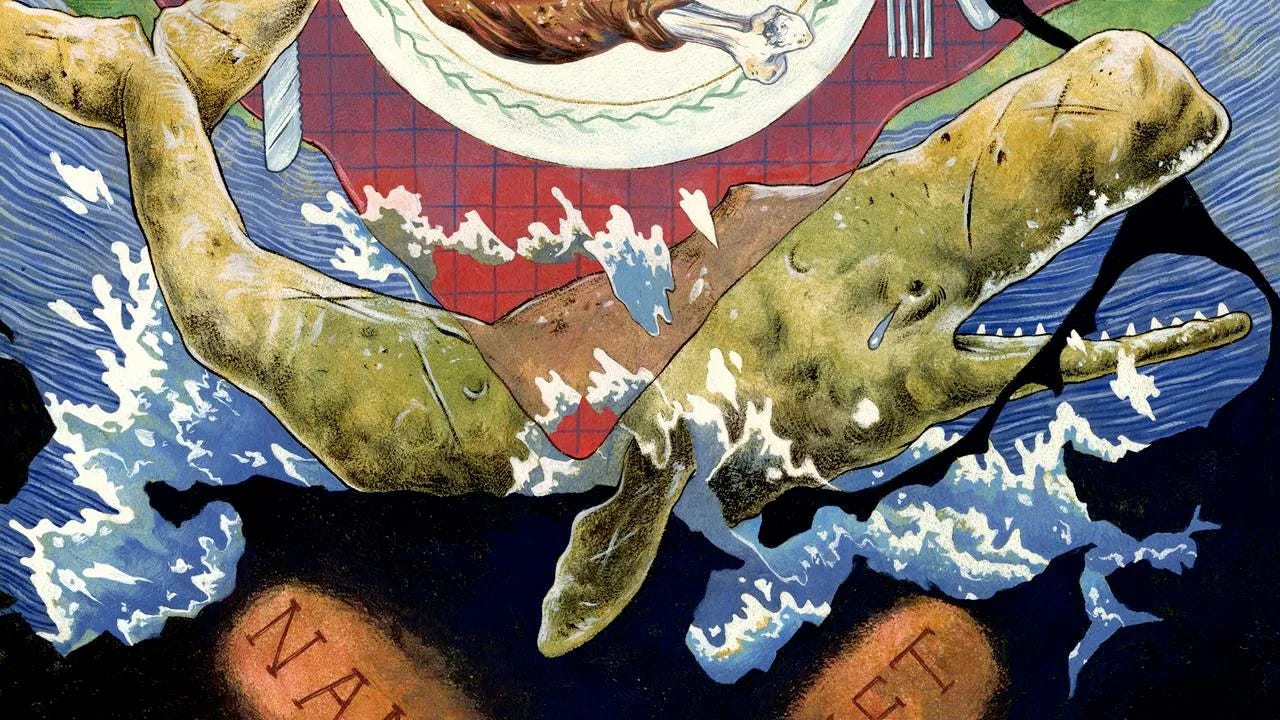A Whaleship Full of Cannibals (Who Happen to Be My Family)
My parents love the tale of how our ancestors’ whaling ship capsized, turning the crew into cannibals. As an environmental reporter, there’s no story I dread hearing more.
My mother clutches the drumstick in her hand, growling like a dog. A spark of menace in her eye, she gnaws at the bone, maniacally shouting “The cartilage!” over and over. I sit staring at her across the Thanksgiving table, mortified.
This gruesome theatre has been part of the entertainment at family holiday dinners for each of my 24 years because we are all the descendants of cannibals.
In the early 1800s an immense sperm whale collided headlong with a ship that carried some of my mother’s ancestors, leaving them at the edges of the Earth without hope, and eventually they were forced to eat one another to survive.
“Your mother’s gone off the deep end,” my dad says, pretending to fight with her over a piece of turkey skin. Moments later, against a backdrop of holiday jazz and maybe even softly falling snow, my dad reaches a hand slowly over to my mother’s plate, feigning a look of fear. My mother, fully committed to the shtick, snaps at him, protecting the bare turkey bone as if she is a famished wolf. This bit always gets big laughs.
Growing up in New England, I cringed every time drumsticks were first pulled off a glistening bird, knowing that we were all about to engage in a rousing torrent of jokes about consuming human flesh. It’s the equivalent of announcing to friends and relatives we’ve welcomed into our home that we are a group of feral savages. There’s a sense in our family that the story is a point of pride, as well as a riveting party tidbit. I long avoided learning more about the tale of the ship and its survivors, refusing to read the literary classic it inspired — Herman Melville’s Moby Dick — hoping that our grim relation to it would, like so many other family tragedies, become lost in the skeins of history.
These days I’m an environmental reporter and writer. I think about whales and the business of slaughtering them almost daily, frequently investigating illegal whaling activity and exploiting those who take part in it. I know all too well the way a whale thrashes in its dying moments, a fact that’s made it difficult to confront my family’s past as a whaling powerhouse. For years, I’ve felt that a person who can look at a whale and see only blubber and meat must be a sociopath, that whalers had been robbed of some sort of fundamental human compassion for animals bestowed to the rest of us at birth. But like it or not, my family history will never change, and the current Cronin crop certainly aren’t going to stop joking about it anytime soon. It’s time to face the 195-year-old tale — a leviathan itself.


